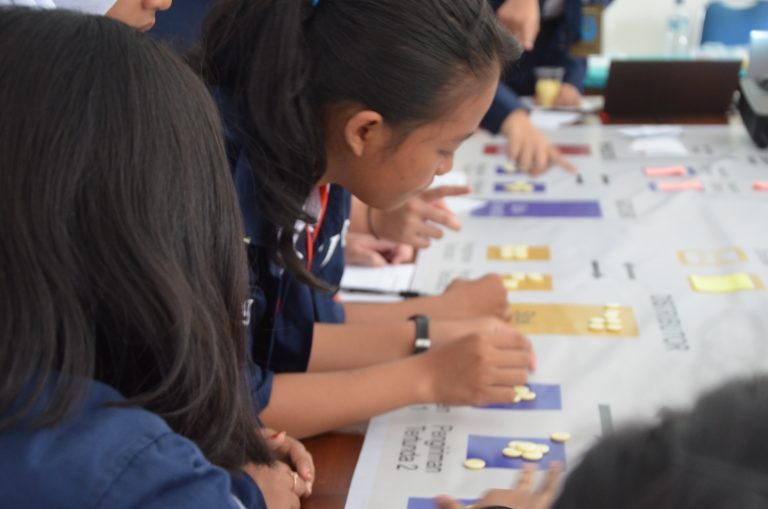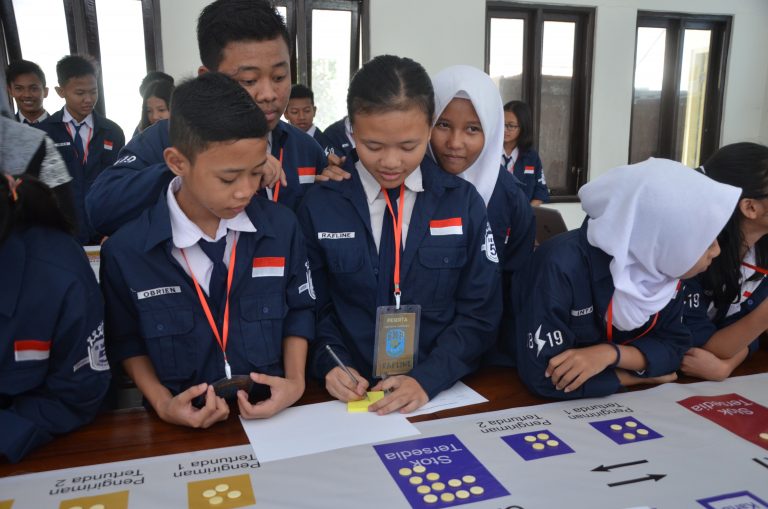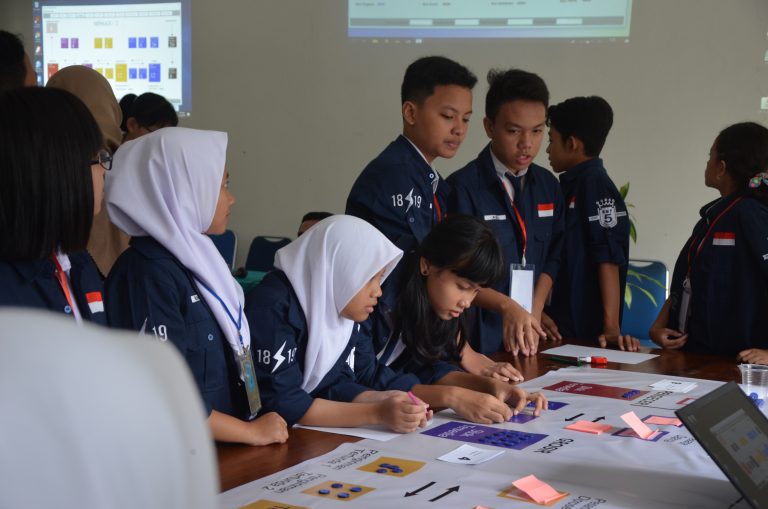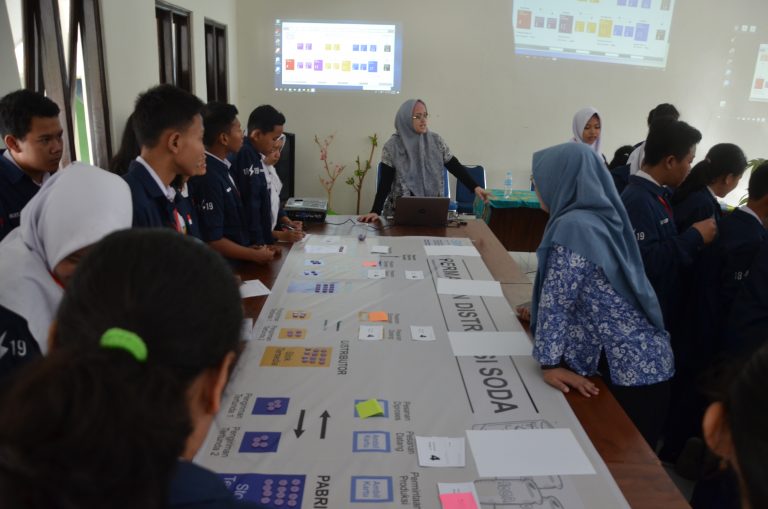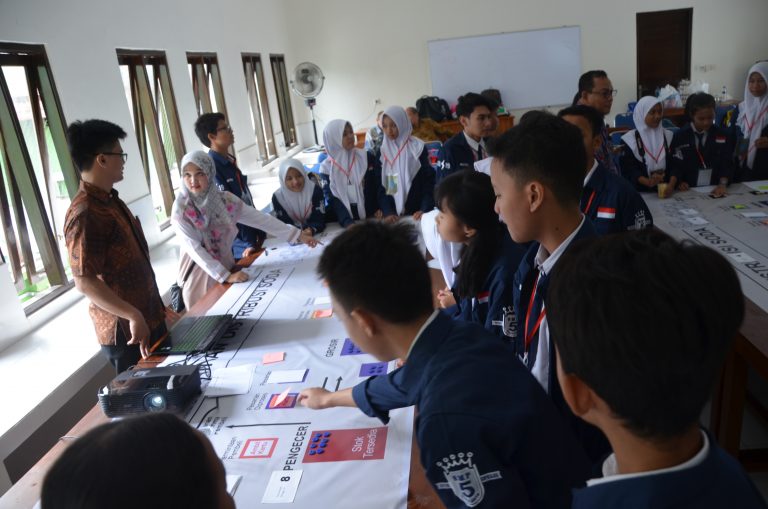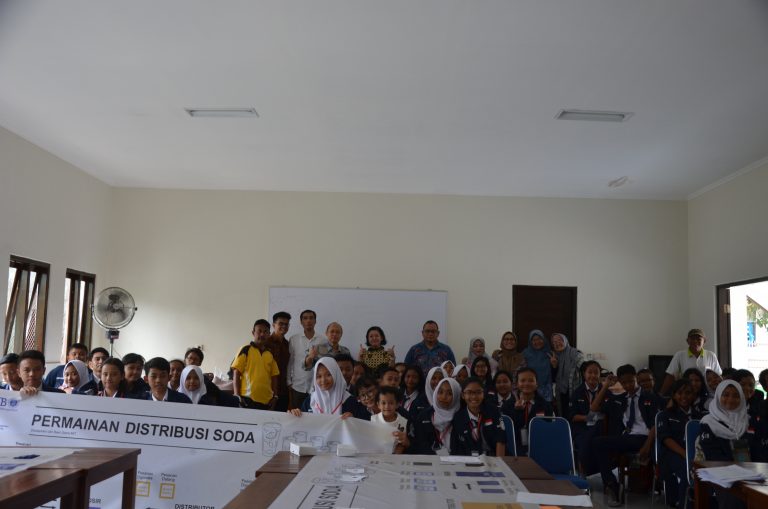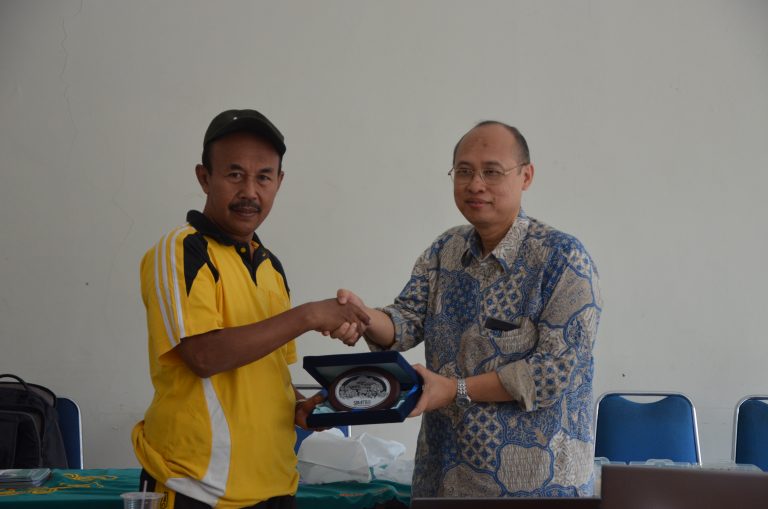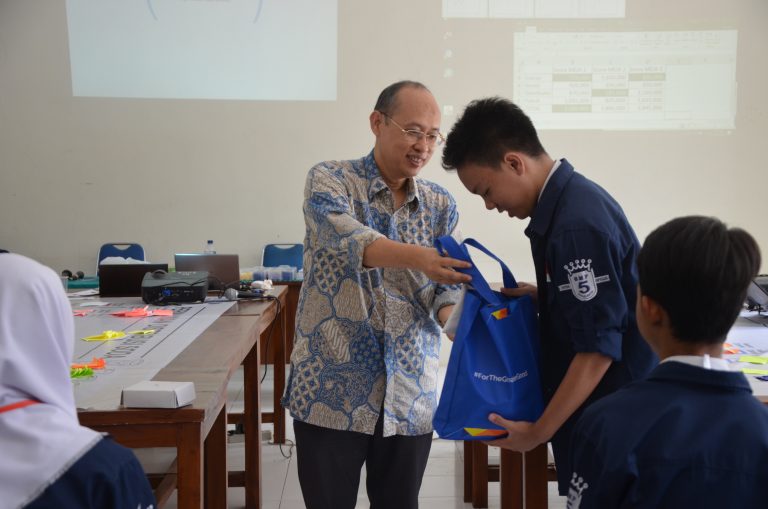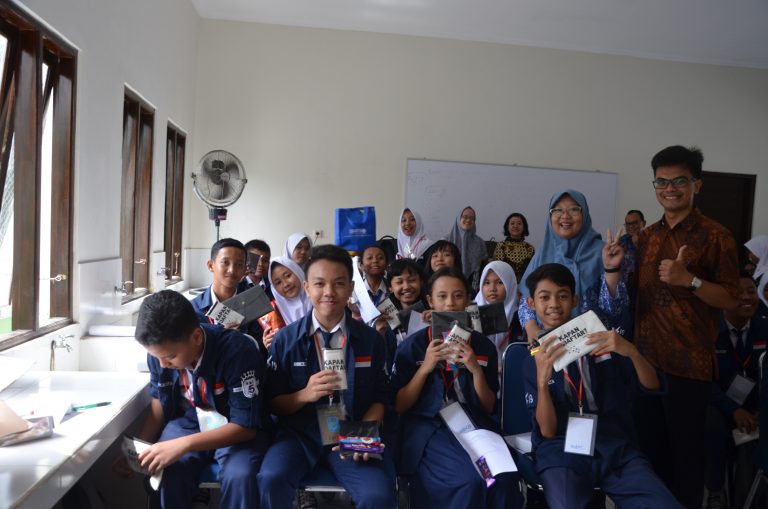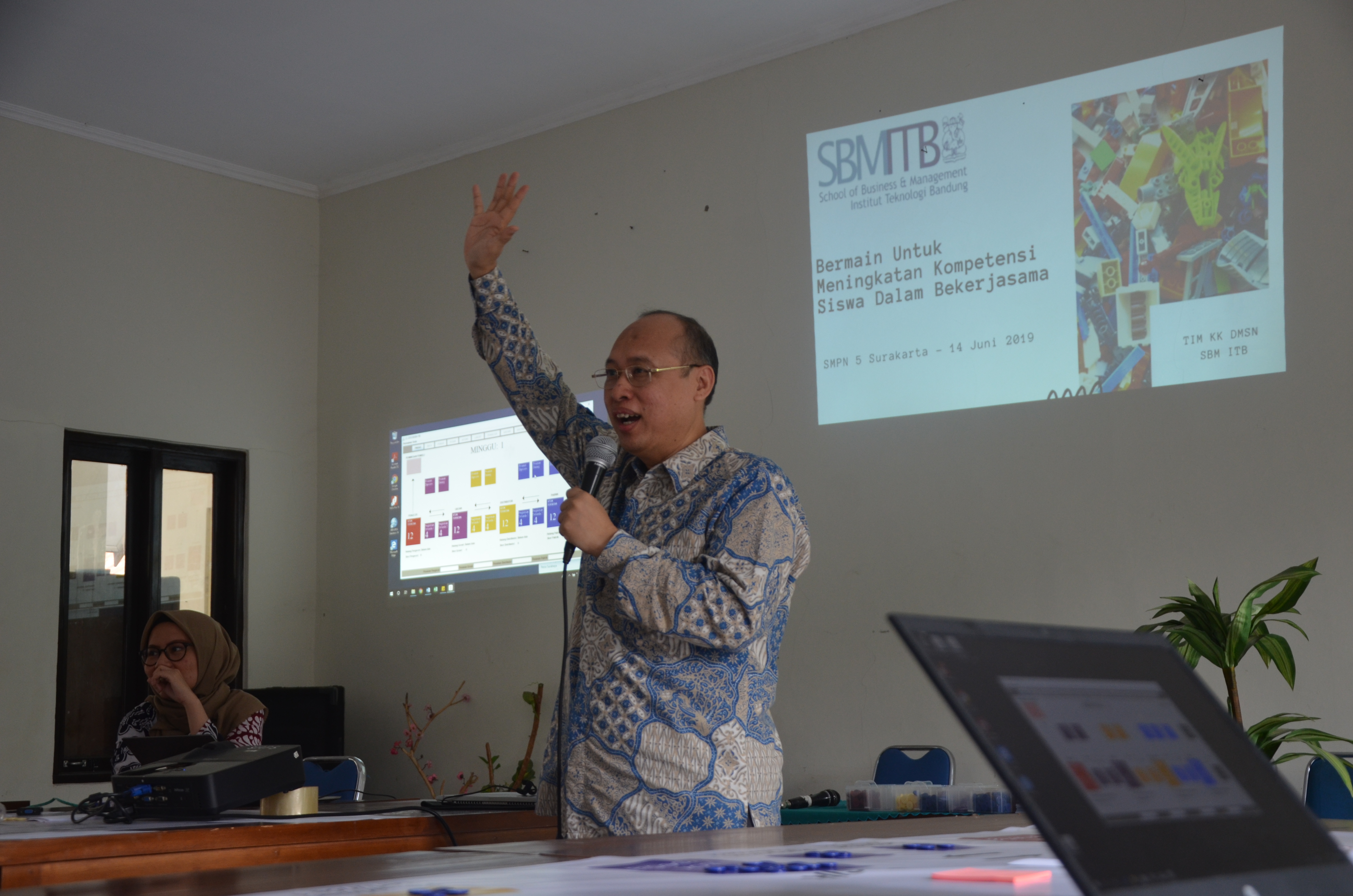To achieve the Indonesian Government target in creating a human society with a strong character, innovative and competitive, the effort in increasing the quality of the learning environment is needed. One of the top priority in the education strategy is to enable students to form the core skill in learning. The collaborative skill is one of the main important skills that can be developed through higher-order thinking skills (System Thinking).
K-12 is one of the education frameworks in an attempt to provide a scope and sequence for grade level systems thinking. It has been formally adopted in several countries education system to enhance student capability in learning. Realizing the benefit opportunity of the framework in supporting the government target, DMSN SBM ITB tried to introduce it to the student in the junior high school level. System thinking was adopted to train the student, how to think and act collaboratively. The introduction was delivered in the interactive and fun activities workshop format.
On May 14th 2019, the workshop was held in collaboration with the school administrators. We gathered 50 students who were currently active in the student Organization (OSIS). The workshop was opened with the inspirational speech from Professor Utomo Sarjono Putro. Professor Utomo addressed the future challenges, the urgency of the collaboration, and motivates the students to pursue the highest education as high as possible to equip them to be the future leaders.
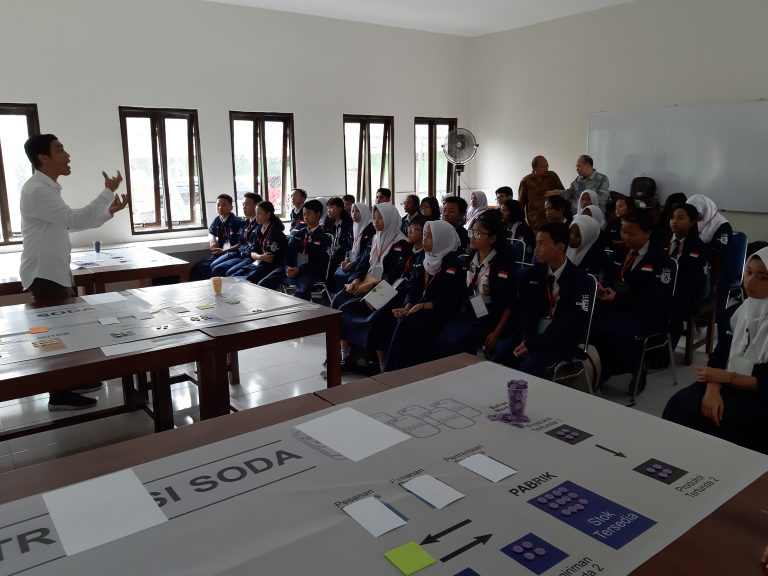
Afterward, we invited the students to play the “SODA GAME” facilitated by Dr. Manahan Siallagan, the game is adopted from the MIT Sloan Beer Game and finished the workshop by emphasized the lesson learned that they can be synthesized from the game.
The game itself was conducted with the formation of 3 groups of separated soda supply chain, competed for each other on how to achieve the lowest cost possible in the soda supply chain system. Each supply chain group was formed by 4 units who play the role of retailer, wholesaler, distributor, and producer.
Similar to the competition existed among the groups, each unit were challenged to achieve the lowest possible cost as well. There were two winning categories, first is the group winner, the group whose the whole supply chain created the lowest total cost. Second, the unit winner, the unit who achieved the lowest cost among all of the units.
The SBM ITB team continuously observed the play and spotted that the winning team clearly showed better communication skills and collaborative intention behavior. Soon the winning team realized about the long term effect of bad communication, and immediately changed personal incentive orientation into the team incentive orientation. This changing strategy led the group works better in terms of the long term operational cost generation.
Seeing the result of the workshop, we are excited to spread it out wider in the future, to see how this system can contribute significantly.
